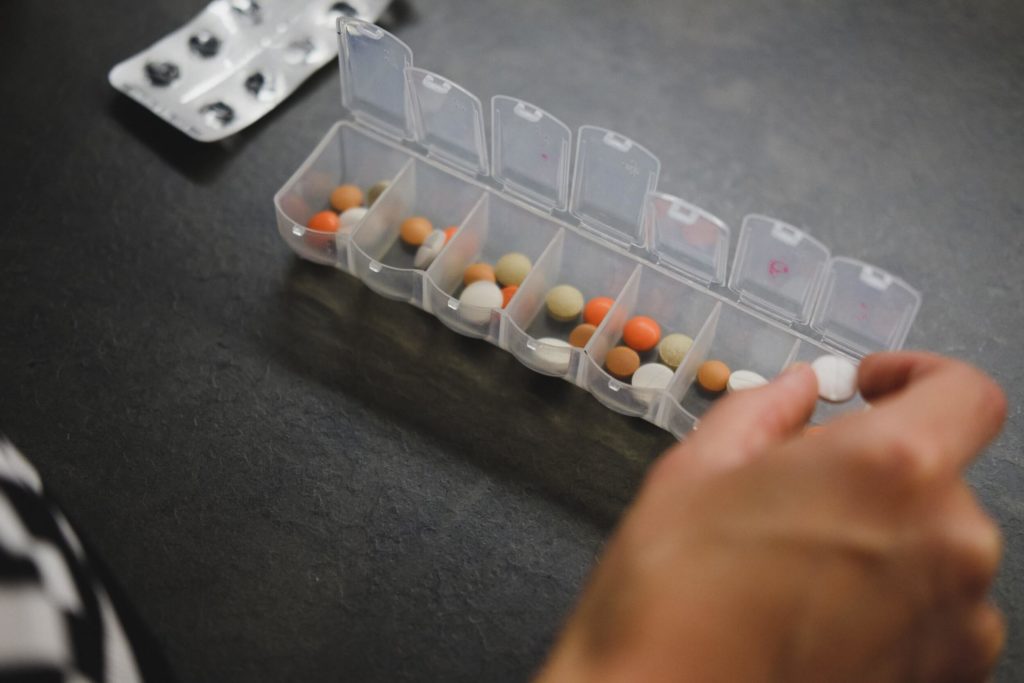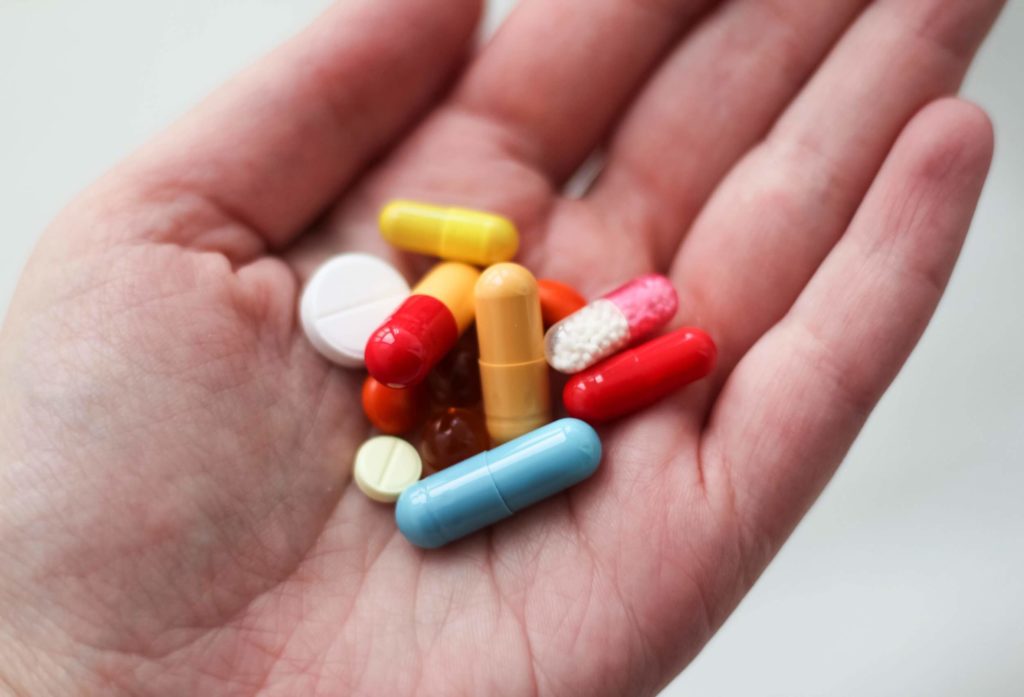Berberine has been prescribed for the same but in addition to high blood pressure and high levels of cholesterol. There is a lack of scientific evidence to support its use for the treatment of many conditions, and its use as a supplement is still under examination.
Do note that Ultrahuman does not recommend or prescribe the use of any supplements or regulated drugs.
Highlights
- Berberine has been reported to be prescribed by medical professionals to treat metabolic syndrome, inflammation and cancer cases.
- Metformin has been prescribed by medical professionals in combination with a diet and possibly other medicines to lower blood sugar levels and regulate how the body draws energy from food.
- Both berberine and metformin can impact how nutrients are transformed into energy, as well as how much energy is stored, distributed, and absorbed by cells and other organs in our body.
What is Berberine?
Berberine is a bitter-tasting, a yellow bioactive compound found in some plants, including the Oregon grape and Chinese goldthread. It has been in regular use in botanical medicine. However, recent research around it has accelerated and led to it becoming more commonly known and available.
Curiously, it can also be used as a dye. Berberine has been reported to be prescribed by medical professionals to treat metabolic syndrome, inflammation and cancer cases. Research suggests that it reduces glucose-induced cell death in mice and enhances autophagy.
A 2016 study carried out by Cicero and Baggioni carries evidence of lower lipid levels, indicating a moderated presence of cholesterol in people consuming it for the study. In the same study, berberine also lowered insulin resistance, moderating blood sugar levels.
Early indications of using berberine as a way to improve vascular health in people affected by cardiovascular diseases exist. This is most likely achieved by accessing the adenosine monophosphate-activated protein (AMPK) pathway.
This pathway is rarely used. By using it, the body regulates energy at a cellular level and moderates inflammation to efficiently use energy from different nutrient groups. The AMPK pathway is considered a key player in the development of new treatments for obesity, type 2 diabetes, and metabolic syndrome.
Research suggests that AMPK has evolved to respond to metabolic stress at the cellular level. Hormones and cytokines such as insulin, leptin, and adiponectin can interact with the system, and it now appears to play a major role in maintaining energy balance at the whole body level.

Breaking down the science of Berberine
Once berberine has been processed by the body, it reaches the bloodstream. From here, it can enter cells. Within the cells, it begins to bind to varied mechanisms and impacts how they operate. Berberine affects the body at a molecular level:
- A decrease in the pace at which carbs are processed.
- The reduction in the creation of sugar in our liver is caused by an increase in glycolysis, a 10-step process that converts glucose to a distributable form to move around our body. It is the first pathway used in the breakdown of glucose to extract energy.
- It decreases the body’s resistance to insulin.
It offers access to the AMPK pathway, which is used to regulate metabolism by balancing nutrients and energy.
Research suggests that berberine simulates the following
- Hepatic fatty acid oxidation – is a process that reduces the presence of stored fat in our liver. This regulates our body’s ability to break down larger units of energy into bits easier to process into energy or distribute. It extends to allow energy availability through periods of fasting or when food is unavailable to our body.
- Skeletal muscle fatty acid oxidation. This takes place as certain berberine effects mimic exercise. The body’s ability to carry this out is tied to physiological variables, namely leanness, aerobic fitness levels, and a moderated measure of insulin level sensitivity. Typically, these variables are associated with exercise.
- Muscle glucose uptake affects insulin effectiveness and glucose disposal, similar to exercise.
Berberine also inhibits these processes in the body:
- Cholesterol synthesis (the conversion of food and nutrients in the body to create cholesterol), lipogenesis (the conversion of carbohydrates into fats for more efficient storage), and triglyceride synthesis (the process of fat molecules being converted into energy for cells).
- Adipocyte lipolysis (the release of fat to be used as an energy source to fuel our organs) and lipogenesis. Both of these processes help process triacylglycerol, i.e., the fluid that controls the two-way transfer of energy to and from the bloodstream as well as its storage

What is Metformin?
Metformin has been prescribed by medical professionals in combination with a diet and possibly other medicines to lower blood sugar levels and regulate how the body draws energy from food. The drug was approved in Canada in 1972 and in the US in 1995.
In addition, it accelerates fat distribution and utilisation. While these effects offer some clarity, the process by which this occurs requires more studies. Although the process is less clear, these effects could result from a reduction in appetite or alter the way our bodies store and use fat. It also keeps lipid levels within bounds, per some research.
It can impact the way human bodies create, store, and utilise energy. Metformin is also prescribed for PCOS. PCOS is associated with problems in terms of ovulation and irregular menstrual cycles. In PCOS, a hormone called LH (from the pituitary gland) or levels of insulin (from the pancreas) are too high, which then causes the ovaries to make extra amounts of testosterone.
Doctors recommend metformin since it has the ability to make the body more sensitive to insulin. Consequently, this drops glucose production in the liver. Further, metformin can have a simulation impact on ovulation and is known to lower testosterone levels by about 25%.
Breaking down the science of Metformin
Metformin impacts a range of processes and functions in our body. Metformin functions in the liver in three ways:
- It suppresses glucose production.
- It enhances the sensitivity of the liver, muscle, fat, and cells to the insulin that the body generates.
- It reduces the absorption of carbohydrates.
Metformin reduces serum glucose levels by several different mechanisms, notably through non-pancreatic mechanisms without increasing insulin secretion. It facilitates the action of the gut microbiota by enabling digestion through a catalysed bile acid concentration.
Bile acid is essential for processing food to become nutrients through the process of digestion. At this stage, it can be converted to energy in the form of fat and glucose. It aids with glucose utilization.
In a meta-analysis of metformin studies, BMI reduction by about 5% in people who met the criteria for simple obesity through metformin consumption. Further, such BMI reduction tapered off after 6 months.

Overlap between Metformin & Berberine
Berberine and metformin have clinical overlaps. They are considered to be alternatives for each other. Here are some more research-backed reasons that physicians fall back on to recommend Berberine:
- It has antioxidant and anti-inflammatory properties.
- According to studies, it combats a range of infections – such as bacteria, viruses, fungi and parasites.
Metformin can cause alterations in daily health by:
- Moderating the free and total testosterone levels in healthy males. It could also spike sexual hormones by binding globulin and dehydroepiandrosterone sulphate.
- PCOS patients may undertake prescribed metformin treatment to the effect of a rise in androgen hormone availability. Further, it may moderate autophagy, a process of self-digestion.
- With certain anti-inflammation properties, metformin could reduce morphine tolerance.
Risks associated with using Berberine and Metformin
Typical metformin side effects are tied to the gastrointestinal system. A short list that extends further would also include:
- An upset stomach
- Indigestion
- Vomiting and Diarrhoea
- Bloating and Cramping
- Anorexia or reduced appetite
- Heartburn
- Loss in weight
Metformin, an insulin sensitiser, also increases your risk of low blood sugar (hypoglycaemia). While high blood sugar is dangerous, low blood sugar is dangerous, too. Long-term and high dosages of metformin amplify the probability of vitamin B12 deficiency. A lack of vitamin B12 can cause mood changes, memory loss, and damage to the nervous system.
A grave side effect of metformin could be lactic acidosis, a potentially life-threatening condition stimulated by the buildup of lactic acid in the blood. If too much metformin accumulates in the blood due to overdose, it can lead to acidosis. The combination of serious kidney issues and metformin can increase the risk of acidosis.
Research suggests that berberine has been reported to cause cytotoxicity and adversely influence the synthesis of DNA. Sub-chronic toxicity of berberine has been reported to be linked with lung and liver damage.
In 2020, the FDS asked manufacturers of certain formulations of metformin to voluntarily withdraw the product from the market after dangerous levels of N-Nitrosodimethylamine (NDMA), a substance that may cause cancer were found in the composition.
Conclusion
Both berberine and metformin have their origin in natural elements that have been prescribed in glucose regulating treatment. They can impact how nutrients are transformed into energy and how much energy is stored, distributed, and absorbed by cells and other organs in our body.
They carry the potential to unlock AMPK, considered a highly conserved pathway that switches on catabolic pathways generating ATP. APMK is an energy-sensing enzyme that signals to stimulate glucose uptake in skeletal muscles, fatty acid oxidation in adipose (and other) tissues, and reduces hepatic glucose production.
Berberine and Metformin are best prescribed by medical professionals. The US FDA recently recalled metformin in some forms due to the presence of ill-advised levels of carcinogenic or cancer-causing elements. Some side effects and risks have been associated with their usage.
Disclaimer: The contents of this article are for general information and educational purposes only. It neither provides any medical advice nor intends to substitute professional medical opinion on the treatment, diagnosis, prevention or alleviation of any disease, disorder or disability. Always consult with your doctor or qualified healthcare professional about your health condition and/or concerns and before undertaking a new health care regimen including making any dietary or lifestyle changes.
References







